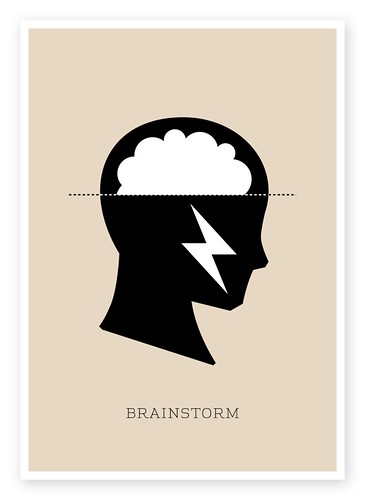This post serves as both a link to my final public argument (yay!) and some information about the appeals used in my argument, along with the purpose and audience.
 |
| Search Engine People Blog. "publish-ud" 05/21/10 via Flickr. Attribution 2.0 Generic |
1. Mark with an "x" where you feel your target audience currently stands on the issue (before reading/watcing/hearing your argument) below:
←----------------------------------------------------|-------X-------------------------------------------------->
Strongly Totally neutral Strongly
agree disagree
2. Now mark with an "x" where you feel your target audience should be (after they've read/watched/heard your argument) below:
←----------------------------------------------------|-------------------------------X-------------------------->
Strongly Totally neutral Strongly
agree disagree
3. Check one (and only one) of the argument types below for your public argument:
_______ My public argument establishes an original pro position on an issue of debate.
_______ My public argument establishes an original con position on an issue of debate.
_______ My public argument clarifies the causes for a problem that is being debated.
_______ My public argument proposes a solution for a problem that is being debated.
___X____ My public argument positively evaluate a specific solution or policy under debate (and clearly identifies the idea I'm supporting).
_______ My public argument openly refutes a specific solution or policy under debate (and clearly identifies the idea I'm refuting).
4. Briefly explain how your public argument doesn’t simply restate information from other sources, but provides original context and insight into the situation:
5. Identify the specific rhetorical appeals you believe you've employedi n your public argument below:
Ethical or credibility-establishing appeals
_____ Telling personal stories that establish a credible point-of-view
__X___ Referring to credible sources (established journalism, credentialed experts, etc.)
__X___ Employing carefully chosen key words or phrases that demonstrate you are credible (proper terminology, strong but clear vocabulary, etc.)
__X___ Adopting a tone that is inviting and trustworthy rather than distancing or alienating
__X___ Arranging visual elements properly (not employing watermarked images, cropping images carefully, avoiding sloppy presentation)
_____ Establishing your own public image in an inviting way (using an appropriate images of yourself, if you appear on camera dressing in a warm or friendly or professional manner, appearing against a background that’s welcoming or credibility-establishing)
_____ Sharing any personal expertise you may possess about the subject (your identity as a student in your discipline affords you some authority here)
_____ Openly acknowledging counterarguments and refuting them intelligently
__X___ Appealing openly to the values and beliefs shared by the audience (remember that the website/platform/YouTube channel your argument is designed for helps determine the kind of audience who will encounter your piece)
_____ Other:
Emotional appeals
_____ Telling personal stories that create an appropriate emotional impact for the debate
__X___ Telling emotionally compelling narratives drawn from history and/or the current culture
_____ Employing the repetition of key words or phrases that create an appropriate emotional impact
_____ Employing an appropriate level of formality for the subject matter (through appearance, formatting, style of language, etc.)
__X___ Appropriate use of humor for subject matter, platform/website, audience
__X___ Use of “shocking” statistics in order to underline a specific point
__X___ Use of imagery to create an appropriate emotional impact for the debate
__X___ Employing an attractive color palette that sets an appropriate emotional tone (no clashing or ‘ugly’ colors, no overuse of too many variant colors, etc.)
_____ Use of music to create an appropriate emotional impact for the debate
_____ Use of sound effects to create an appropriate emotional impact for the debate
____ Employing an engaging and appropriate tone of voice for the debate
_____ Other:
Logical or rational appeals
_____ Using historical records from credible sources in order to establish precedents, trends, or patterns
__X___ Using statistics from credible sources in order to establish precedents, trends, or patterns
__X___ Using interviews from stakeholders that help affirm your stance or position
__X___ Using expert opinions that help affirm your stance or position
__X___ Effective organization of elements, images, text, etc.
__X___ Clear transitions between different sections of the argument (by using title cards, interstitial music, voiceover, etc.)
__X___ Crafted sequencing of images/text/content in order to make linear arguments
_____ Intentional emphasis on specific images/text/content in order to strengthen argument
__X___ Careful design of size/color relationships between objects to effectively direct the viewer’s attention/gaze (for visual arguments)
_____ Other:
6. Below, provide us with working hyperlinks to THREE good examples of the genre you've chosen to write in. These examples can come from Blog Post 11.3 or they can be new examples. But they should all come from the same specific website/platform and should demonstrate the conventions for your piece:
Example 1
Example 2
Example 3




















